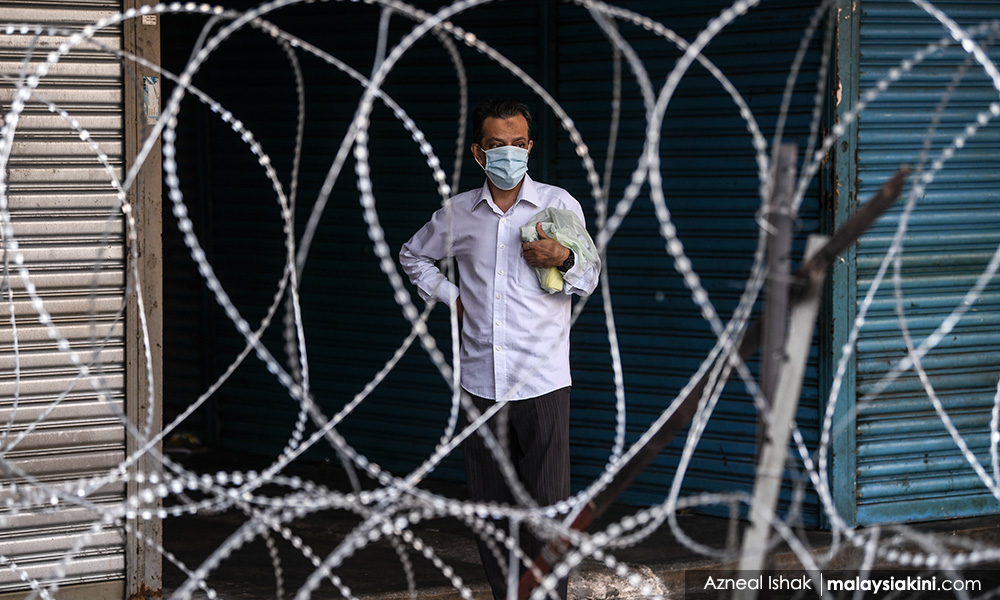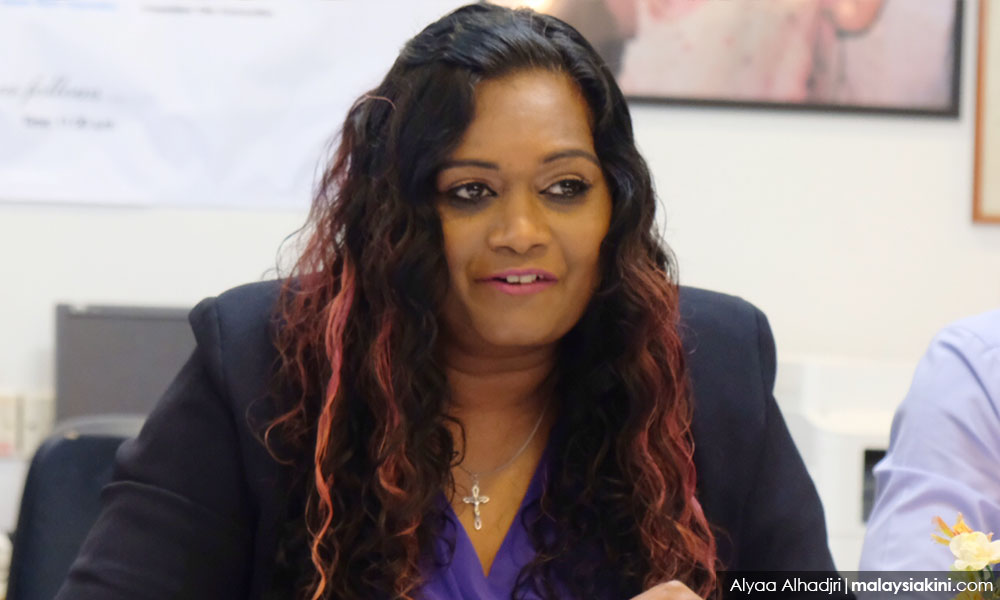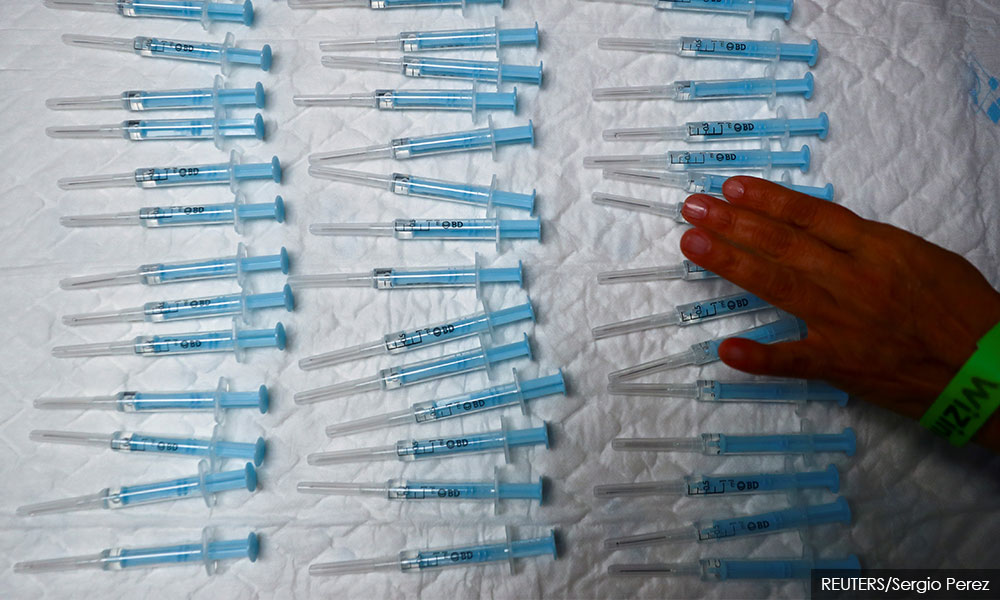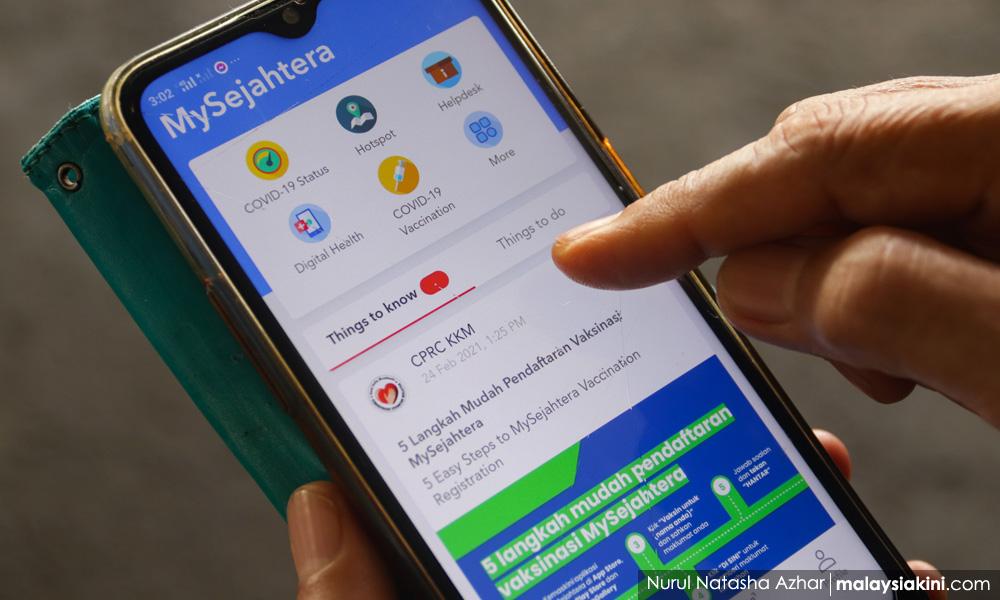Once bitten, twice shy - migrant workers shun vaccination programme
“Is it possible for them not to take any action? If the police see there are undocumented migrants, won’t they arrest us?”
This was the reaction of 'Salim' (not his real name), a Bangladeshi migrant worker, when asked whether he had registered under the National Covid-19 Immunisation Programme (NIP).
Asked whether he believes the government’s promise of “not arresting migrant workers”, he laughed.
Science, Technology and Innovation Minister Khairy Jamaluddin had previously said that the national immunisation programme would include undocumented foreign nationals and he gave his assurance that the government would not arrest those who come forward for vaccination.
In contrast, when the pandemic hit the country earlier last year, Immigration Department officers conducted several large-scale raids and arrested hundreds of undocumented migrants. These images are still fresh in the minds of the migrant workers community.
Last April, Salim witnessed the place he lived in being fenced up with barbed wire and barricades and put under an enhanced movement control order (Emco). A few weeks later, enforcement personnel went door-to-door and took away those without proper documentation.
Salim wasn’t arrested at that time as he held a legitimate work permit. However, his permit is going to expire soon and he is unable to renew it because he lost his job during the pandemic.
Pressed further on whether he would register for the vaccination, he told Malaysiakini, “If I have proper documentation, I will take the vaccine when the time comes.
“But if my documentation expires and I become kosong (undocumented), I don’t dare to take it,” he said.

This seems a common sentiment shared by undocumented migrants. Migrant worker activists Abu Hayat and Iham (not his real name), who work with Bangladeshi and Indonesian migrant workers respectively, found that most migrant workers hope to get the vaccination as soon as possible in order to continue with their jobs.
At the same time, they are sceptical of the government's assurance and are maintaining a wait-and-see attitude on whether the authorities are arresting any undocumented migrant worker who turns up for the vaccination.
Abu and Iham pointed out that the migrant worker communities lost faith when the government arrested migrant workers who came forward for Covid-19 testing last year, despite an assurance to the contrary.
“It is difficult to build confidence... (migrant workers) are not afraid of the vaccine side effects, they are afraid of getting arrested. So they decide to observe first, see whether there will be a crackdown or not.”
Call for amnesty
When contacted, North-South Initiative director Adrian Pereira explained that the NIP faced two main issues - distrust among undocumented migrant workers towards the government and secondly, the authorities' lack of data on migrant worker demographics.
In order to regain their confidence and trust, Adrian said the government should issue a moratorium that promises no arrests of undocumented migrant workers during the period of the vaccination programme.
He also mooted that embassies and high commissions should be responsible for gathering data of their nationals and share these with the Health Ministry for vaccination and follow-ups.
Adrian also suggested that the Home Affairs Ministry refrains from participating in the vaccination programme as its presence could sow fear among the migrant worker communities.

Tenaganita executive director Glorene A Das also agreed that an amnesty be declared and no raids or operations against migrant workers are conducted during the period of the NIP's preparation and implementation.
Statements or promises by the ministers are insufficient to restore the confidence of migrant workers and persuade them to come forward for the jabs.
“There has to be real, concrete action to address the fear issue, the fear instilled in the community. If that is not solved, nothing will be effective,” Glorene said.
She concurred with a proposal for the private sector or health-based NGOs to handle the vaccination of migrant workers, instead of government agencies.
Glorene added that this could prevent migrant workers, refugees and asylum-seekers from providing inaccurate personal details due to a fear of being arrested.
'No instructions at all'
Meanwhile, Adrian noted that the government has not issued any instructions or information for migrant workers on the how-to of getting vaccinated.
He warned that a lack of information through the proper channels could prompt these communities to turn to social media, resulting in exposure to misinformation and disinformation.
“The best way to tackle misinformation is to give them the best and most accurate information, but these are currently absent,” Adrian said.
'Joey' (not her real name), a Filipino migrant worker, told Malaysiakini that although she heard that undocumented migrants were eligible to be vaccinated, she didn’t know the time, venue and how to register.
She claimed that her friend suffered a serious side effect after getting two doses of a vaccine in Abu Dhabi in the United Arab Emirates and she was deeply worried about a similar reaction.
Liezl Galdo, adviser of the Association of Nationalist Overseas Filipino Workers (Ammpo) pointed out that many Filipino migrant workers were afraid of the side effects of the various Covid-19 vaccines.

“We are just waiting for our turn to get vaccinated (but) will the government give us the same vaccine they give their own people? We are scared that we will be given a (less effective) vaccine.”
Galdo also pointed out that they were unsure whether migrants would have to pay for their vaccine, although the government announced that it would be free. This because Human Resources Minister M Saravanan had previously said that employers would have to bear all immunisation costs of their migrant workers.
UN agency in discussions
A spokesperson for the United Nation’s International Organisation for Migration (IOM) told Malaysiakini that ensuring migrant workers were included in the vaccine rollout was key to ending the pandemic.
He pointed out that it was not merely a moral issue but also vital for accelerating economic recovery.
He said the UN entity had attended meetings with various government agencies, such as the home affairs and health ministries, to discuss the best approach in vaccinating migrant workers and refugees.
The IOM was monitoring and sharing best practices from around the world on how different countries were including migrants in their national vaccination programmes, he added.
“IOM and other UN agencies and NGOs will continue to support the vaccination rollout by collecting feedback from communities and assisting with migrant-friendly information dissemination," the spokesperson added.
Malaysiakini has contacted Khairy's office in order to get his response on the issues raised.
In order to reach herd immunity, Malaysia has targeted to vaccinate 70 to 80 percent of its population of around 26.7 million people.

As of April 12, only 8,602,156 or 35.5 percent of the country's population had registered for the immunisation programme.
The second phase of the immunisation programme has already begun for senior citizens and high-risk groups with chronic diseases and disabilities, while several new groups categorised as economic frontliners and others will be included as vaccine recipients.
According to a World Bank report that was published in 2019, 2.96 to 3.26 million migrant workers were residing in Malaysia in 2017 and among them are 1.23 to 1.46 million migrant workers who are in 'irregular situations'.
During the second wave of the Covid-19 pandemic last year, several areas densely populated with migrant workers and refugees, such as Jalan Masjid India and Selayang in Kuala Lumpur, were subject to an Emco.
The subsequent raids by Immigration Department enforcement officers against migrant workers came under heavy fire from civil society organisations. - Mkini
✍ Credit given to the original owner of this post : ☕ Malaysians Must Know the TRUTH
🌐 Hit This Link To Find Out More On Their Articles...🏄🏻♀️ Enjoy Surfing!




















Post a Comment